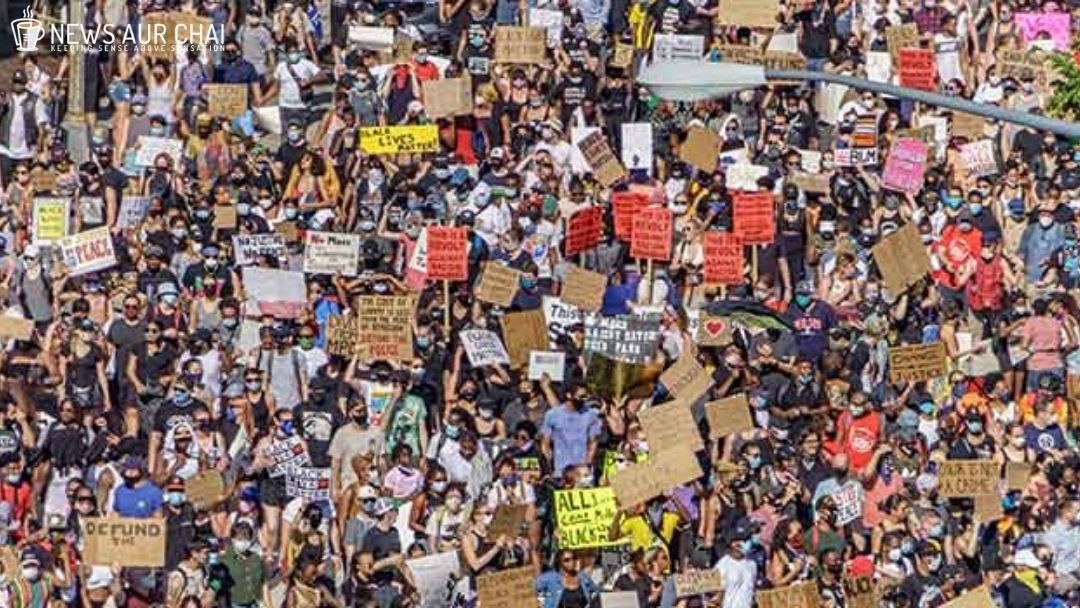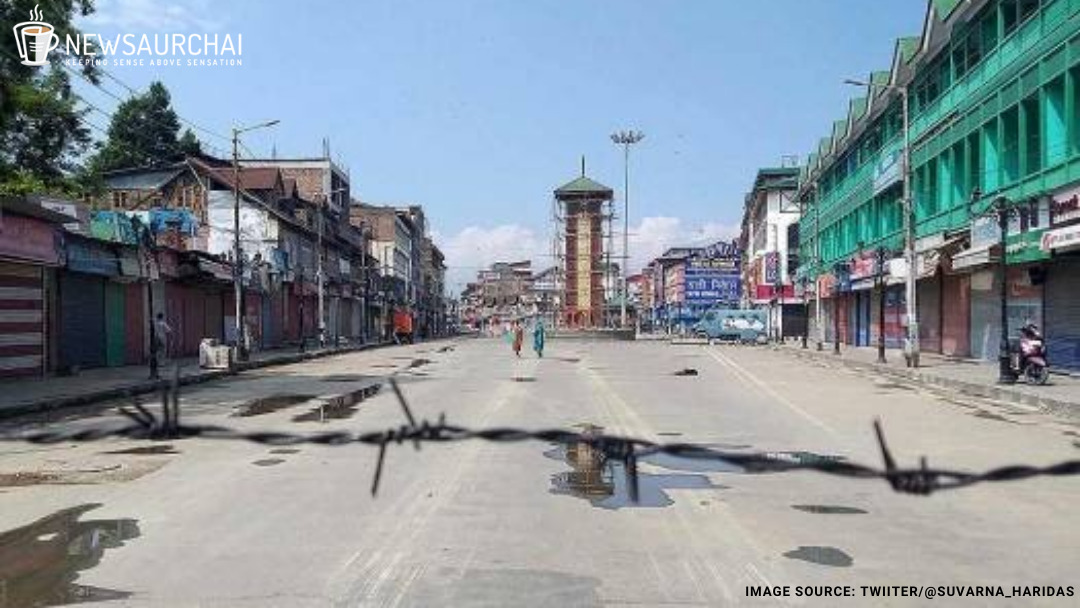
The farm bills protest has caused Northern India to halt with protestors blocking highways, roads, entry points with their decision of “Bharat Band on 8th November”. Protesting farmers completely blocked Delhi-Meerut expressway at UP Gate border that connects Delhi and Ghaziabad amid their call for Bharat Bandh.
In the negotiation with Centre, leaders of farmer unions addressing the reporters demanded that the Centre must withdraw the three new farm laws and that the MSP (Minimum support price) should be guaranteed.
Farmers protestors from Punjab and Harayana blocked five main entry points into Delhi and denied shifting to Burari ground to which they called ‘open jail’. Surjeet S Phul, President, BKU Krantikari (Punjab) said, “Instead of going to open jail in Burari, we’ve decided that we will gherao Delhi by blocking 5 main entry points to Delhi.”
On Monday, Delhi Police had to close the Dhansa border after farmers from Bharatiya Kisan Union (BKU) blocked the route and occupied the road in solidarity with the farmers protesting at other gates of the national capital.
Farmer’s perspective:
The farm leaders have profoundly said that the three new agricultural laws are “anti-farmer and pro-corporate”, and that MSP should be guaranteed. The farmers from Punjab and Harayana have been staging protests for 11 days which started from blocking Singhu and Tikri borders have now been expanded. They have assured the government that they won’t leave the borders unless and until Delhi is open for them to protest at Jantar Mantar.
Last month Supreme court rejected a PIL (public interest litigation ) which challenged the farm bills brought up by the Centre.
Marching to Delhi:
The farmers have been protesting about the three farm laws since Centre brought it into the parliament. At that time, they were at their respective villages and staged their agitation against the bills passed. With less acknowledgement received from the Centre and media, farmers moved to the Delhi borders, so that their voices can be heard and have an impact on the Centre.
Though many believe that blocking the borders of National Capital Region (NCR) will make it difficult for the local public as blocking borders shall play a significant role in disrupting the flow of traffic on the roads that connect the nearby states to the NCR.
However, the inconvenience caused to the mundane lives of the public is of a significant concern. Hence, the Centre should make efforts to hear the farm leaders and reach a decision that’s in the best interest of the farmers as well as the nation.
Peaceful protests make democracy stronger:
Resistance and criticism have been one of the cores of democracy. Democracy establishes people’s rule, where their voices are heard, and their troubles are solved lawfully with justice and equality. Thus, criticism against government policies with protests, hartals, media, awareness makes India one of the most healthy democracies.
However, if the resistance isn’t peaceful or criticism isn’t confined to the boundary of law, then such a resistance proves fatal for democracies. A country like India has a tradition of peaceful protest with Mahatma Gandhi pioneering Civil movement and satyagraha.
In such a case, one may ask, is it justified to block entry point of a city to protest?
The answer depends upon the perspective to look upon the protests. It causes inconvenience to the local citizen who has nothing to do with the acts. Traffic continues to disrupt the capital every day.
A PIL has also been filed against blocking the entry points with third-wave hitting the New Delhi, and rising pollution poses a significant threat to health conditions. Furthermore, emergency medical services and intra- transport of medical equipment amidst the pandemic raises serious questions. The petition has been filed under Article 32 of the Constitution of India in the “nature of public interest”.
However, it is to be noted that the voices of farmers were not paid any heed to when they opted the more straightforward way by protesting from their home state. Farmers want Centre’s attention onto the bills. Agriculture is still the largest source of livelihoods in India. Thus, farmers are blocking the entry points to make the Centre heard their voices, demands and discomfort. The methodology may look harsh from a distant point of view, but the farmers came all the way from their villages in Punjab and Haryana and are sleeping out in the open in the chilly winters of Delhi.
The protests show the Centre that farmers are an integral part of the country and Centre needs to scale up its negotiation skills to finally have peace with farmers.






One Comment